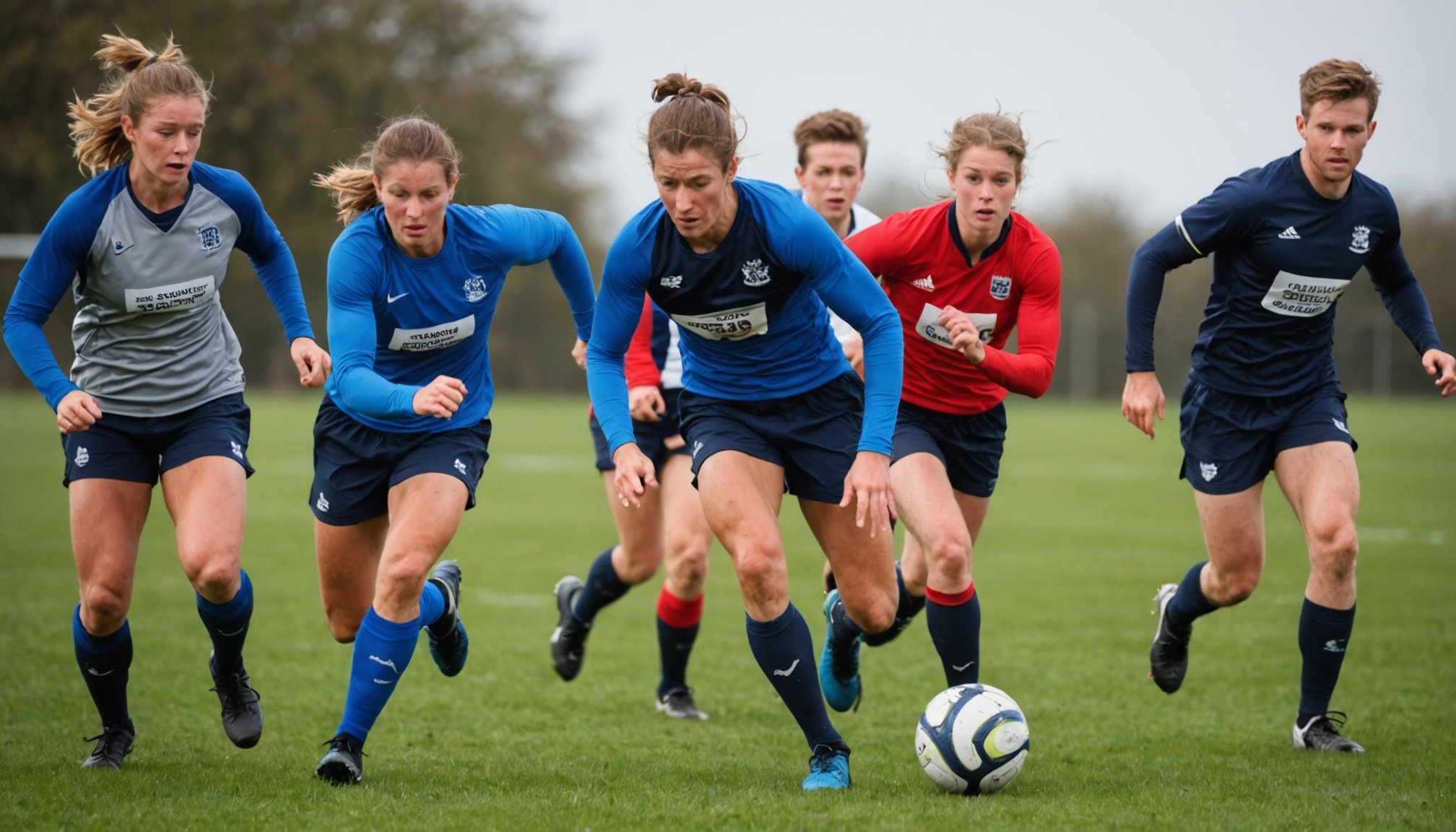Understanding Grit in Sports Context
Grit is often defined as a blend of endurance and resilience, particularly essential in the realm of sports. This quality reflects an athlete’s ability to persist in the face of adversity, sustaining prolonged effort while maintaining focus on long-term goals. In the sphere of sports psychology, grit is considered a cornerstone of exceptional performance.
Embedded deeply within psychological principles, grit encompasses attributes like mental toughness and unwavering determination. These attributes enable athletes not just to withstand physical challenges but also to navigate the psychological hurdles encountered in competitive environments. Understanding the psychology behind grit reveals that its development can amplify an athlete’s performance.
Also to read : Revitalizing athletic performance: effective techniques for uk sports therapists to combat chronic injuries in elite athletes
Moreover, grit significantly influences team dynamics. In a team context, individual grit can uplift collective efforts, enhancing overall cohesion and performance. Athletes with high levels of grit often inspire teammates, creating a culture of resilience that can be pivotal for success. Consequently, fostering this trait is integral to achieving both individual and team objectives in sports.
Importance of Building a Grit Culture
Creating a supportive environment is crucial in fostering grit within a team. A culture that values perseverance motivates individuals to push through challenges, leading to remarkable successes. For instance, UK sports teams frequently demonstrate the impact of a robust team culture where members support each other’s resolve to excel. This camaraderie enhances the tenacity required to overcome obstacles.
Also read : Enhancing training for uk track and field coaches: essential mental health strategies for athlete well-being
Case studies from UK sports illustrate how cultivating grit translates into success. One notable example is the British Cycling Team, which underwent a cultural overhaul to focus on marginal gains and teamwork. This shift led to significant achievements on the international stage, highlighting the importance of perseverance and determination.
Cultural change not only benefits team performance but also contributes to individual growth. Athletes often develop increased resilience, which can aid in both personal and professional realms. By embedding grit into the team culture, members benefit from a shared commitment to improvement, ultimately fostering an environment where perseverance is celebrated and rewarded.
Strategies for Developing Endurance and Resilience
Enhancing both endurance and resilience can be achieved through a range of effective strategies. The combination of mental and physical conditioning is vital to fostering these attributes.
Psychological Conditioning Techniques
Mental training plays a significant role in developing resilience. Implementing mental resilience training programs can significantly bolster one’s capacity to withstand stress. Techniques such as mindfulness, visualisation, and cognitive reframing empower individuals to manage adversity effectively. By consistently practising these methods, you build an arsenal of psychological tools that enhance mental strength.
Physical Training Regimens
For endurance, incorporating endurance-focused physical training is indispensable. Activities such as long-distance running, swimming, or cycling are excellent for enhancing cardiovascular stamina. High-Intensity Interval Training (HIIT) is also beneficial for improving both endurance and resilience. Incorporate progressive overload to continually challenge the body and boost physical capabilities over time.
Building Support Networks
Developing a support network is crucial for maintaining motivation and increasing accountability. Creating team accountability through peer support not only encourages consistency but also provides a platform for sharing personal experiences and strategies. This communal approach fosters a nurturing environment which is conducive to building both mental and physical fortitude. Embrace these effective strategies to empower your journey towards improved endurance and resilience.
Role of Coaching in Fostering Grit
In the pursuit of developing grit, coaching techniques play a pivotal role. Exceptional coaches often exhibit traits such as empathy, patience, and the ability to inspire. These characteristics are vital for successfully cultivating grit in their mentees.
One effective mentorship strategy for nurturing mental toughness is creating an environment where failure is seen as a learning opportunity rather than a setback. This instills resilience, enabling individuals to persist in the face of challenges. Coaches who foster such environments encourage mentees to view obstacles as stepping stones to success.
Leadership styles that are transformational can also significantly impact grit development. Transformational leaders inspire through their vision and personal example, encouraging perseverance through difficult times. By modeling resilience themselves, they provide a living blueprint for others to follow.
A successful coach integrates various coaching techniques like active listening, goal-setting, and providing constructive feedback. These approaches help mentees develop a robust mindset needed for enduring challenges and striving continuously toward their goals.
Measuring Progress in Grit Development
Understanding the development of grit requires precise assessment methods and performance evaluation. This can be achieved through various tools and techniques, focusing on qualitative and quantitative approaches.
Tools for Measuring Grit
Tools such as self-report tests and scales are commonly used to assess grit levels. They allow for the evaluation of personal perseverance and passion over time. Implementing standardised tests provides measurable insights into an individual’s tenacity.
Observational Techniques
Observational techniques play a crucial role in monitoring grit. By observing behaviours, one can evaluate how an individual handles challenges and setbacks. This method involves looking at the consistency of effort in difficult situations.
Feedback Mechanisms
Team feedback is vital for measuring grit progress. Employing feedback mechanisms enables individuals to receive constructive criticism and recognition, allowing for growth. Feedback from team members and coaches offers a comprehensive view, aligning personal perceptions with external observations.
- Psychological assessments reveal the mental aspects of grit.
- Performance metrics track improvements in resilience.
- Qualitative feedback provides deeper insights into team dynamics.
Incorporating these diverse methods ensures a holistic approach to understanding and fostering grit within any context.
Addressing Challenges in Grit Cultivation
In developing grit within sports teams, several common barriers often arise. One primary challenge is overcoming a team’s resistance to cultural change. Athletes and coaching staff may have ingrained habits that resist alteration, making it difficult to integrate new initiatives.
To effectively address these barriers, clear communication is critical. Team leaders can implement solutions by setting expectations early and frequently demonstrating the benefits of enhanced grit. Highlighting the positive outcomes of persistence can gradually sway opinions, fostering a more adaptive mindset among team members.
Maintaining momentum in grit initiatives is essential for long-term success. Regular progress check-ins help keep the focus intact and identify any emerging issues early. Encouraging feedback from athletes can also provide invaluable insight, ensuring that strategies remain engaging and impactful.
For instance, incorporating interactive workshops can motivate teams and provide practical applications of grit principles. This hands-on approach helps to embed grit as a core value, further solidifying its place within team culture. By addressing these challenges with informed and empathetic strategies, teams can cultivate an environment where grit thrives, ultimately leading to improved performance and resilience on and off the field.











